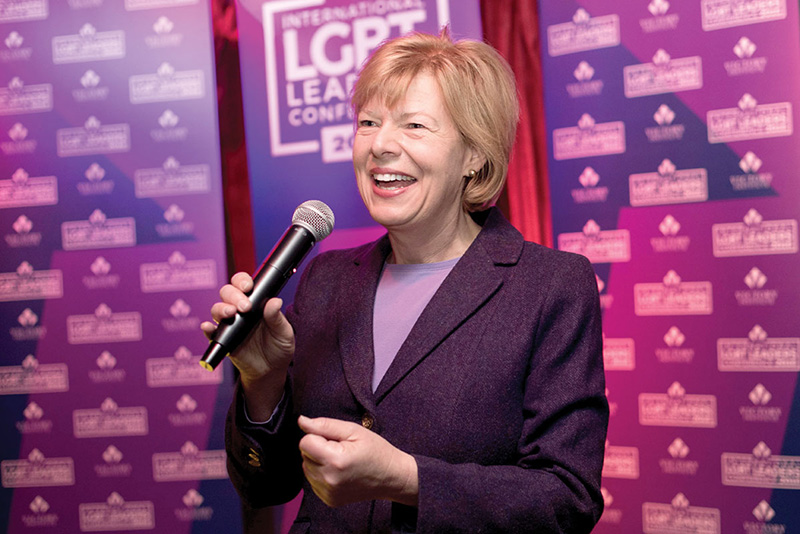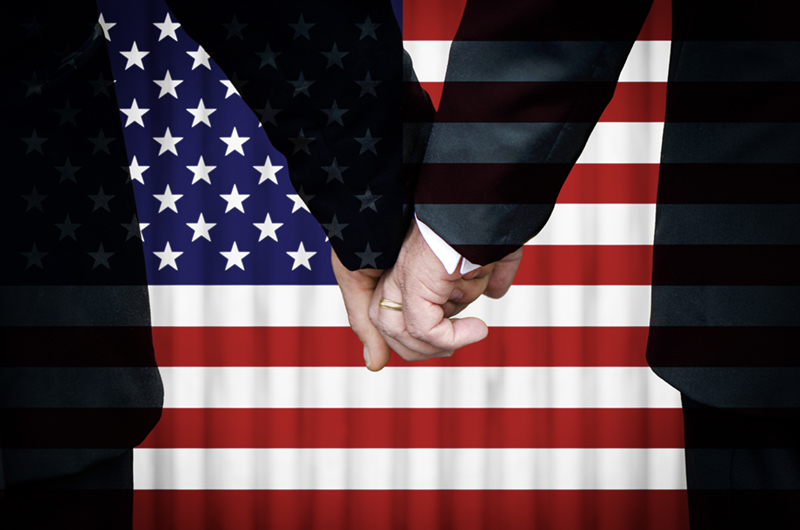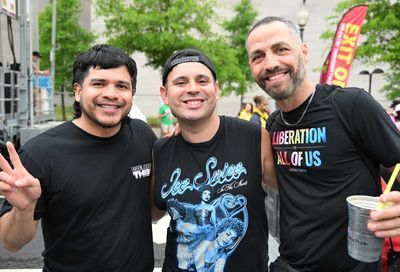Uganda Court Upholds Horrific Anti-Gay Law
Uganda's Constitutional Court upheld the bulk of the country's law criminalizing homosexuality and pro-LGBTQ advocacy.

Uganda’s Constitutional Court upheld the bulk of Uganda’s controversial Anti-Homosexuality Act, rejecting a petition seeking to overturn the law in its entirety.
The five-judge bench did strike down some components of the law as violations of the country’s constitution, including the right to health and privacy.
They also struck down sections of the law allowing for the prosecution of Ugandans who fail to inform on others, including friends and neighbors, for committing homosexual acts; punishing those who allow their premises to be used to commit homosexuality; and criminalizing the transmission of a “terminal illness” through same-sex activity.
Still, the judges allowed the bulk of the law to remain intact.
That means a person can still earn a life sentence in prison for engaging in same-sex relations, or a death sentence for “aggravated homosexuality,” such as seducing or coercing someone to engage in same-sex acts.
Attempting to engage in gay sex merits a sentence of seven to 14 years in prison, and those believed to “promote” homosexuality or advocate for LGBTQ equality can face up to 20 years.
“We decline to nullify the Anti-Homosexuality Act 2023 in its entirety, neither will we grant a permanent injunction against its enforcement,” Richard Buteera, one of the judges, said to a packed courtroom. “The upshot of our judgment is that this petition substantially fails.”
Since President Yoweri Museveni signed the law last year, Uganda has faced intense backlash, with many Western nations condemning it.
The World Bank has halted all new loans to the country, and the Biden administration has imposed visa restrictions on an unspecified number of Ugandan officials, preventing them from entering the United States.
The U.S. government also issued a business advisory for Uganda warning travelers about the Anti-Homosexuality Act, and removed the country from a special program allowing African products duty-free access to U.S. markets.
Any fallout Uganda experiences will be monitored by other African countries that are considering their own anti-LGBTQ laws, including Kenya, Namibia, Tanzania, and South Sudan.
In February, Ghana’s Parliament passed an anti-gay law, but the country’s president has vowed not to sign it until the country’s Supreme Court determines whether it is constitutional.
Anti-LGBTQ sentiment is not only widespread on the African continent — especially in conservative Muslim and Christian countries — but popular among voters.
Many Ugandans — as well as Africans, regardless of their country — frequently (and falsely) claim that homosexuality is a Western import and incompatible with religious and cultural values.
Some proponents of the law have claimed that gay men are attempting to “recruit” children into homosexuality, playing on decades-old tropes portraying gays as predatory.
Human rights activists claim that the law’s passage has increased the violence and harassment directed against individuals accused of being gay or transgender.
Some people suspected of being LGBTQ claim they have been evicted from their homes and assaulted by neighbors and family members, forcing many to flee Uganda due to concerns for their own safety.
Frank Mugisha, a prominent gay rights activist, said he was saddened by the Constitutional Court’s decision but promised to appeal to Uganda’s Supreme Court. He also expressed concerns that the judges’ decision had been swayed by “the propaganda from the anti-gay movement who kept saying that this is in the public interest and refuting all the arguments that we made that relate to the Constitution and international obligations.”
Steven Kabuye, a gay rights advocate who was forced to flee to Canada after being stabbed in January, told the New York Times he was “very disappointed but not surprised” by the decision.
“The LGBTQI+ community has been pushed further in the darkness, as always, with claims of protecting public policy and moral values,” Kabuye wrote in a post on X.
Support Metro Weekly’s Journalism
These are challenging times for news organizations. And yet it’s crucial we stay active and provide vital resources and information to both our local readers and the world. So won’t you please take a moment and consider supporting Metro Weekly with a membership? For as little as $5 a month, you can help ensure Metro Weekly magazine and MetroWeekly.com remain free, viable resources as we provide the best, most diverse, culturally-resonant LGBTQ coverage in both the D.C. region and around the world. Memberships come with exclusive perks and discounts, your own personal digital delivery of each week’s magazine (and an archive), access to our Member's Lounge when it launches this fall, and exclusive members-only items like Metro Weekly Membership Mugs and Tote Bags! Check out all our membership levels here and please join us today!





























You must be logged in to post a comment.